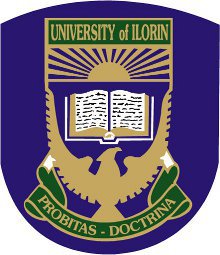Government Keypoint: Nigeria in International Organizations; Nigeria’s participation in international organizations is fundamental to its foreign policy objectives, aimed at fostering cooperation, promoting development, and advancing its interests globally.
Study more government keypoints here
The country engages actively in various international bodies, including the United Nations (UN), regional groupings like ECOWAS and the African Union (AU), and specialized organizations such as OPEC and the Commonwealth.
a. The United Nations (UN):
Role: Nigeria, as a member of the UN, actively participates in promoting peace, security, and sustainable development globally. It contributes troops to peacekeeping missions and engages in diplomatic efforts to resolve conflicts.
Objectives: Nigeria’s engagement in the UN aligns with the organization’s goals of maintaining international peace and security, promoting human rights, and fostering socio-economic development.
Structure: Nigeria participates in various UN bodies, including the General Assembly, Security Council, and specialized agencies like UNESCO and WHO.
Advantages/Disadvantages: Participation allows Nigeria to influence global policies, gain diplomatic support, and access developmental aid. However, challenges arise in balancing national interests with the broader global agenda, and sometimes, bureaucratic hurdles limit the impact of Nigeria’s contributions.
b. The Commonwealth:
Role: Nigeria is an active member of the Commonwealth, promoting cooperation among member states in areas of trade, education, governance, and cultural exchange.
Objectives: The Commonwealth aims to promote democracy, human rights, economic development, and mutual cooperation among its member countries.
Structure: Nigeria participates in Commonwealth Heads of Government Meetings (CHOGM) and contributes to various programs, including the Commonwealth Fund for Technical Cooperation.
Advantages/Disadvantages: Membership offers Nigeria opportunities for collaboration, economic partnerships, and shared experiences. However, the Commonwealth’s effectiveness in addressing global challenges sometimes faces criticism due to its diverse membership and different priorities among member states.
c. The Organization of African Unity (OAU) & African Union (AU):
Role: Nigeria played a pivotal role in the OAU’s establishment and remains active in the AU, focusing on peace, security, and economic integration in Africa.
Objectives: The OAU aimed to promote unity, cooperation, and solidarity among African nations. The AU continues these objectives while emphasizing good governance, peace, and sustainable development.
Structure: Nigeria contributes to AU peacekeeping missions, engages in AU summits, and supports regional integration efforts through organizations like ECOWAS.
Advantages/Disadvantages: Nigeria’s involvement strengthens its influence in African affairs, fosters regional stability, and creates opportunities for economic partnerships. However, challenges persist in effectively addressing conflicts and achieving continental integration due to diverse interests among member states.
d. Economic Community of West African States (ECOWAS):
Role: Nigeria plays a significant role in ECOWAS, supporting economic integration, peace, and security within West Africa.
Objectives: ECOWAS aims to promote economic cooperation, regional integration, and political stability among member states.
Structure: Nigeria participates in ECOWAS decision-making bodies, contributes to peacekeeping missions, and supports regional trade agreements.
Advantages/Disadvantages: ECOWAS membership benefits Nigeria through trade facilitation, collective security measures, and enhanced regional influence. However, challenges arise in implementing agreements and addressing conflicts within the region.
e. Organization of Petroleum Exporting Countries (OPEC):
Role: As a key member, Nigeria collaborates with other oil-producing nations to regulate oil prices and production levels globally.
Objectives: OPEC aims to coordinate and unify petroleum policies among member countries to stabilize oil markets and ensure fair returns for oil-producing nations.
Structure: Nigeria participates in OPEC meetings, decisions on oil production quotas, and pricing mechanisms.
Advantages/Disadvantages: Nigeria benefits from OPEC by influencing oil market stability and gaining economic advantages. However, market fluctuations and differing interests among member countries sometimes impact its effectiveness.
Analysis of Nigeria’s Involvement:
Nigeria’s engagement in international organizations reflects its commitment to global peace, development, and regional integration. The country leverages these platforms to advance its interests, contribute to peacekeeping efforts, and foster economic cooperation. However, challenges persist in aligning national interests with the broader agendas of these organizations.
Contribution to Nigeria’s Development:
Membership in these organizations provides Nigeria with diplomatic leverage, economic partnerships, and opportunities for development. Collaboration within these forums contributes to Nigeria’s socio-economic growth, enhances its global standing, and facilitates access to resources and expertise. However, effective utilization of these opportunities requires strategic alignment with national goals and effective implementation of international agreements and commitments.







